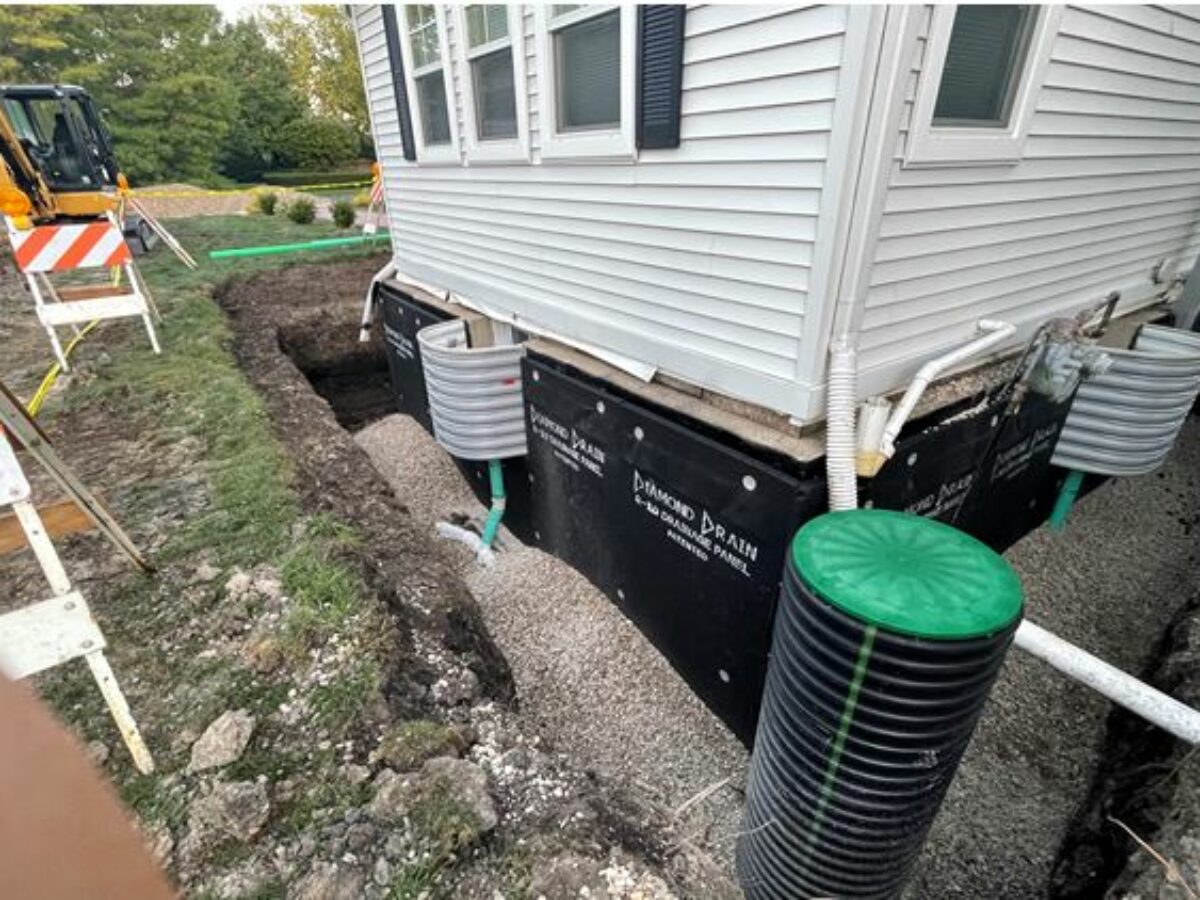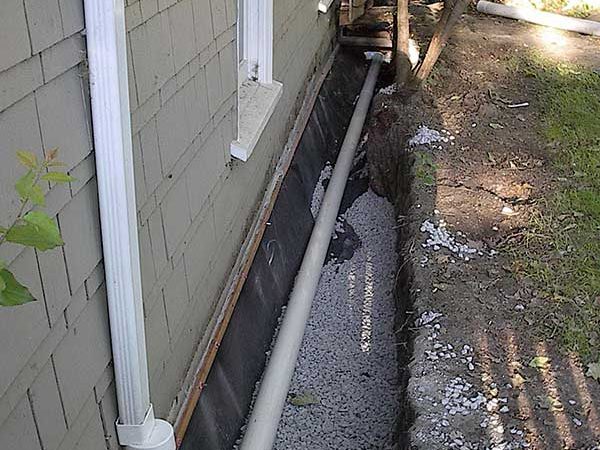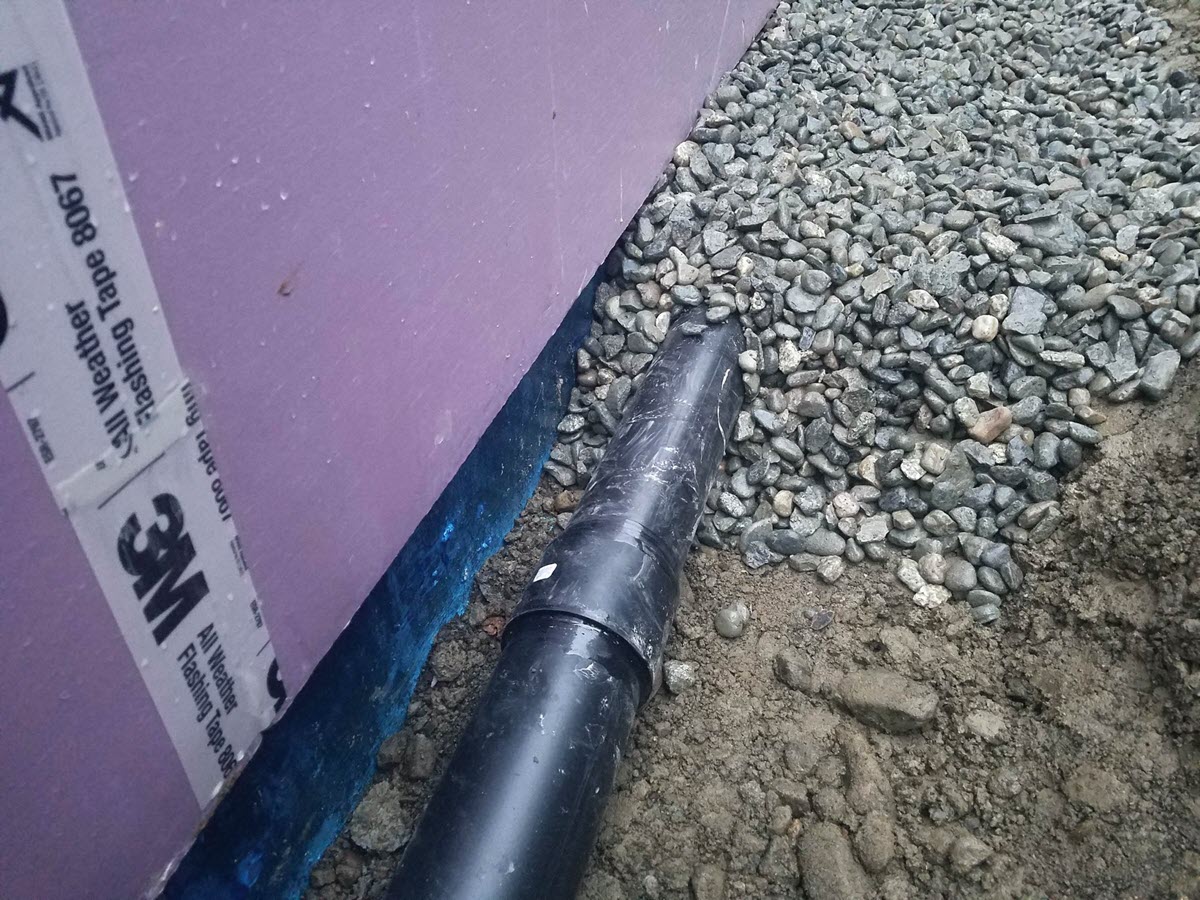Foundation Drain Servicesin Auburn Hills MI
Foundation Drain Solutions to Keep Your Building Secure
We Are Locally Owned & Operated For Over 37 Years
Contact Us Today!
We Serve Businesses In And Around The Following Cities:
About Foundation Drain Services
Introduction to Foundation Drain
The vitality of a well-installed foundation drain around commercial properties cannot be overstated. It’s an integral element of the foundation system, conveniently ensuring that water doesn’t compromise the structural integrity of your commercial property by running off from your building. Of such importance it is, that in the alluring city of Auburn Hills, specialized services like those offered by D&J Contracting come in handy to offer comprehensive, effective solutions.
A foundation drain, sometimes referred to as an exterior foundation drain or a foundation footer drain, works by efficiently channeling water away from your property’s foundation. The system provides an assured method of preventing damaging complications often associated with the accumulation of water around your foundation, particularly for your commercial property.
Process of Installing a Foundation Drain
At the core of installing a foundation drain is a comprehensive and meticulous process aimed at protecting your commercial property’s structural integrity from being compromised by water. A typical process begins with the excavation of the ground around the foundation. This is done to create room for the installation of a foundation drainage system. Then, a trench, designed to house the drain, is dug around the foundation.
The next step involves the installation of a foundation french drain, which provides an avenue for directing water away from your foundation. A layer of gravel is then placed in the trench, providing an effective filter that prevents the buildup of sediments in the drain. Thereafter, perforated pipes, also known as drain tiles, are laid on the gravel layer, around your property’s perimeter. The pipes are wrapped in a sock-like fabric to further prevent silt or sediment from getting into your drainage system. Once the system is set up, it’s covered with gravel and the excavated soil is returned back to its original position.
Benefits of a Foundation Drain
A well-installed foundation drain can promise an array of benefits to commercial properties. One of the most noticeable benefits is the prevention of hydrostatic pressure buildup. This buildup can lead to an array of damaging complications like basement flooding, mold growth, dampness, or even structural disintegration. By having a drain system around your foundation, you’ll effectively keep these water-related complications at bay.
Foundation drains also add value to your property. They contribute significantly to the overall health of your property by keeping it dry, safe, and durable. Property buyers and renters value properties with such health measures in place, thus influencing its market value significantly.
Lastly, but certainly not least, installing a trusted foundation water drainage system aids in avoiding expensive repairs in the future. Water can cause serious damage to your foundation and, ultimately, your entire building. By installing a foundation drain, you’re warding off these potential costly damages.
Real-World Applications in Auburn Hills
For commercial properties in Auburn Hills, installing drainage near the foundation is an industry-standard practice because of its clear benefits. D&J Contracting, a leading local contractor, has numerous real-world applications showcasing the importance of this system.
Consider a commercial building sited on a slope where the gradient leads rainwater towards the foundation. By installing a foundation drain, D&J Contracting channeled the rainwater through the foundation wall drainage system, effectively leading the water away from the building’s foundation. This seamlessly provides an answer as to how to drain water away from the house foundation, ensuring that water damage does not threaten the structural integrity of the building.
In a different scenario, a local business dealt with recurring dampness in their basement, translating to mold growth and an unhealthy working environment. D&J Contracting installed a foundation perimeter drain around the property, which significantly reduced the dampness by siphoning off the water away from the foundations.
The Final Word on Foundation Drains
Dealing with water drainage problems at your commercial property can be a thing of the past when you understand the importance and process of installing a foundation drain system. It promises innumerable benefits both in the short and long-term perspective, including safeguarding your structure’s integrity, enhancing the property value, and easing the maintenance process.
Whether in Auburn Hills or beyond, making the decision to fortify your commercial property with a foundation drainage system is one of the invaluable investments you can make. For expert services, don’t hesitate to reach out to professionals like D&J Contracting. Your commercial property deserves the security and enduring permanence that a reliable foundation drainage system provides
.
Foundation Drain Services Gallery


Call Us Today to receive your Free Quote for
Foundation Drain in Auburn Hills
Serving: Auburn Hills, Michigan

About Auburn Hills, Michigan
In 1908, automobile pioneer John Dodge bought a farmhouse 3 miles (4.8 km) northeast of Auburn Heights to use as his country retreat. His oldest child, Winifred Dodge, married real estate baron Wesson Seyburn, who built his own country retreat 2.5 miles (4.0 km) north of Auburn Heights. The estate included hunting land, dog kennels, a swimming pool, horse stables, and a 5,000-square-foot (460 m) Colonial Revival house. Pontiac Township purchased the estate in 1976, and adapted the buildings for government use. Today, it is known as the Auburn Hills Civic Center.
The first use of the name “Auburn Hills,” in 1964, was by Oakland Community College. They named their campus (a former Nike missile base) at Featherstone and Squirrel roads for the town and the hilly terrain in the area. Besides Oakland Community College, three other colleges, Oakland University, Baker College, and Western Michigan University Thomas M. Cooley Law School have campuses partially within the city limits.
Auburn Hills began as Pontiac Township, including the village of Auburn, in 1821, at what is today the corner of Auburn and Squirrel roads. Situated on the Clinton River, it was named by Aaron Webster, the first settler, for Auburn, New York. His sawmill and grist mill attracted settlers to Auburn. After the streets were laid out in 1826, Auburn rivaled nearby Pontiac until the 1860s, when it lost its own prosperity. The town was renamed Amy in 1880, and it officially became Auburn Heights in 1919. Pontiac Township bordered the city of Pontiac on two sides. The township attempted to incorporate as Pontiac Heights in 1971, but was denied by state officials. Pontiac Township became a charter township in 1978, to protect itself from further annexation. In 1983, Pontiac Township merged with the village of Auburn Heights to become the City of Auburn Hills. It is not to be confused with the similarly named city of Auburn, Michigan, that exists in Bay County, near Saginaw Bay.
According to the United States Census Bureau, the city has a total area of 16.64 square miles (43.10 km), of which 16.60 square miles (42.99 km) is land and 0.04 square miles (0.10 km) (0.24%) is water.
| Census | Pop. | Note | %± |
|---|---|---|---|
| 1880 | 111 | — | |
| 1990 | 17,076 | — | |
| 2000 | 19,837 | 16.2% | |
| 2010 | 21,412 | 7.9% | |
| 2020 | 24,360 | 13.8% | |
| U.S. Decennial Census | |||
As of the census of 2010, there were 21,412 people, 8,844 households, and 4,923 families living in the city. The population density was 1,289.9 inhabitants per square mile (498.0/km). There were 9,965 housing units at an average density of 600.3 per square mile (231.8/km). The racial makeup of the city was 66.3% White, 18.5% African American, 0.3% Native American, 8.9% Asian, 2.7% from other races, and 3.4% from two or more races. Hispanic or Latino of any race were 7.8% of the population.
There were 8,844 households, of which 27.0% had children under the age of 18 living with them, 38.8% were married couples living together, 12.4% had a female householder with no husband present, 4.5% had a male householder with no wife present, and 44.3% were non-families. 33.5% of all households were made up of individuals, and 7.3% had someone living alone who was 65 years of age or older. The average household size was 2.24 and the average family size was 2.90.
The median age in the city was 31.4 years. 19.4% of residents were under the age of 18; 17.8% were between the ages of 18 and 24; 31.9% were from 25 to 44; 21.6% were from 45 to 64; and 9.4% were 65 years of age or older. The gender makeup of the city was 48.4% female and 51.6% male.
As of the census of 2000, there were 19,837 people, 8,064 households, and 4,604 families living in the city. The population density was 1,194.5 inhabitants per square mile (461.2/km). There were 8,822 housing units at an average density of 531.2 per square mile (205.1/km). The racial makeup of the city was 75.92% White, 13.22% African American, 0.32% Native American, 6.33% Asian, 0.04% Pacific Islander, 1.56% from other races, and 2.61% from two or more races. Hispanic or Latino of any race were 4.50% of the population.
There were 8,064 households, out of which 26.7% had children under the age of 18 living with them; 43.0% were married couples living together; 10.5% had a female householder with no husband present and 42.9% were non-families. 33.1% of all households were made up of individuals, and 6.0% had someone living alone who was 65 years of age or older. The average household size was 2.25 and the average family size was 2.92.
The age distribution is 20.4% under the age of 18, 15.9% from 18 to 24, 38.1% from 25 to 44, 18.2% from 45 to 64, and 7.3% who were 65 years of age or older. The median age was 31 years. For every 100 females, there were 98.3 males. For every 100 females age 18 and over, there were 97.5 males.
The median income for a household in the city was $51,376, and the median income for a family was $60,849. Males had a median income of $45,686 versus $34,015 for females. The per capita income for the city was $25,529. About 3.9% of families and 6.3% of the population were below the poverty line, including 6.4% of those under age 18 and 4.4% of those age 66 or over.
School districts serving sections of Auburn Hills include Avondale School District, Pontiac School District, and Rochester Community Schools.
The Avondale School District operates two elementary schools in the city limits: R. Grant Graham Elementary School and Auburn Elementary School. Portions of Auburn Hills in ASD are zoned to these schools. All ASD residents are zoned to Avondale Middle School in Rochester Hills and Avondale High School in Auburn Hills. Other ASD facilities in Auburn Hills include the district administrative offices and Avondale Montessori. A Pontiac school district school, Will Rogers Elementary School, is located in northeastern Auburn Hills.
Private schools in Auburn Hills include:
- Auburn Hills Christian School
- Oakland Christian School
Private schools near Auburn Hills:
- Notre Dame Preparatory/Marist Academy, Pontiac
- Holy Family Regional School (HFRS) – Consists of a grade PK-3 North Campus in Rochester and a 4-8 South Campus in Rochester Hills. Two churches in Auburn Hills designate HFRS as the parish school: St. John Fisher Chapel and Sacred Heart of the Hills. The first two sponsored the school from the beginning and the other three joined later, with Sacred Heart being the final one.
The main campus of Oakland University sits within Auburn Hills. Oakland Community College, Baker College, and Western Michigan University Thomas M. Cooley Law School are also situated in Auburn Hills.
Call Us Today to receive your Free Quote for
Foundation Drain in Auburn Hills
Related Services in Auburn Hills, Michigan
We Serve Businesses In The Following Zip Codes:
48007, 48015, 48021, 48026, 48035, 48036, 48038, 48042, 48043, 48044, 48045, 48046, 48047, 48048, 48050, 48051, 48066, 48071, 48080, 48081, 48082, 48083, 48084, 48085, 48088, 48089, 48090, 48091, 48092, 48093, 48098, 48099, 48225, 48230, 48236, 48310, 48311, 48312, 48313, 48314, 48315, 48316, 48317, 48318, 48397